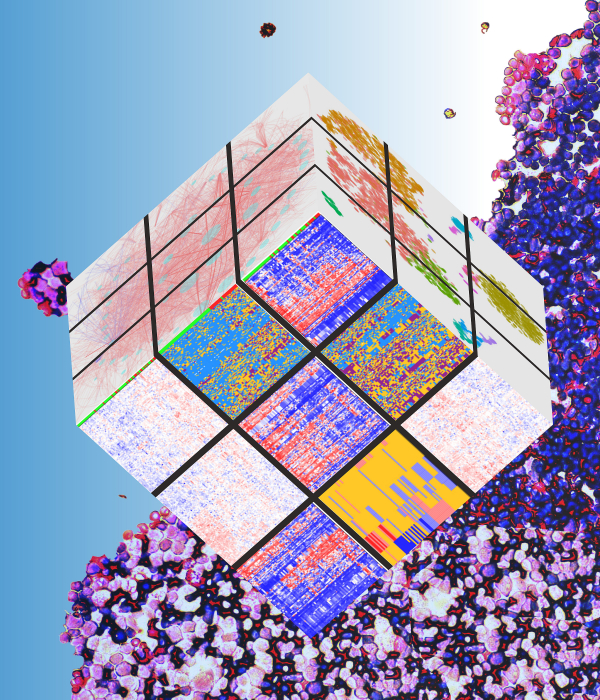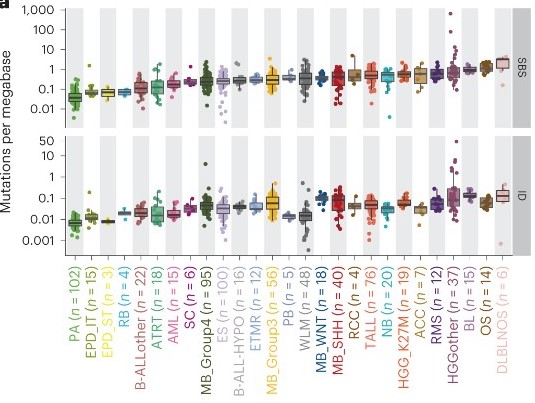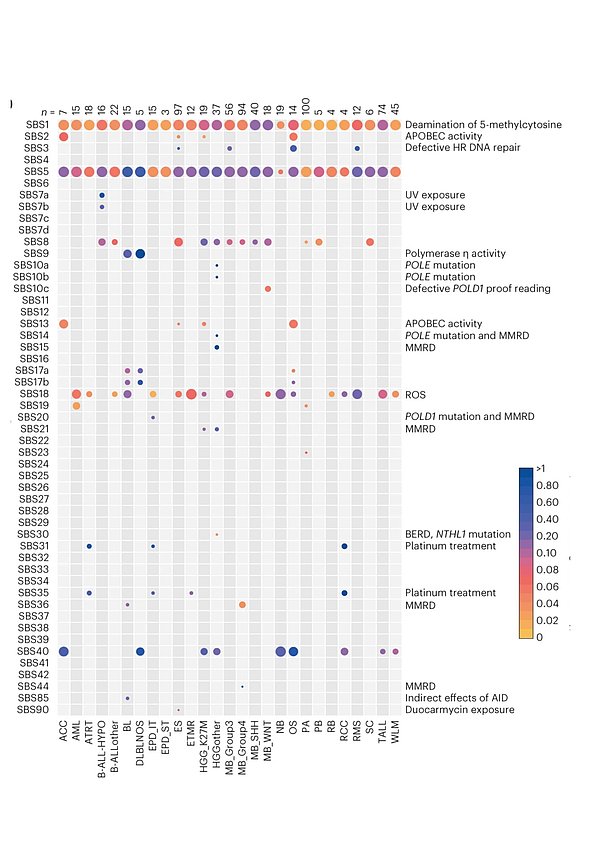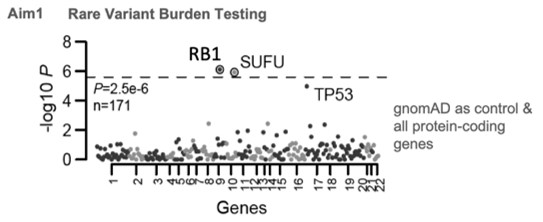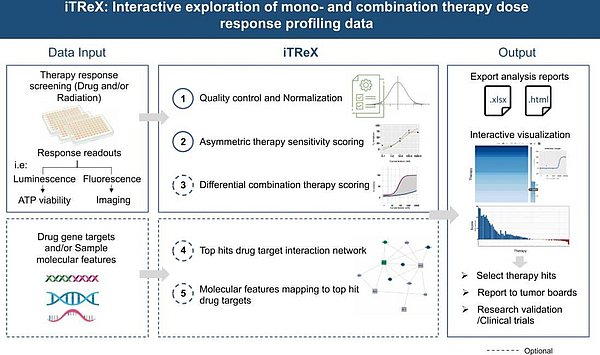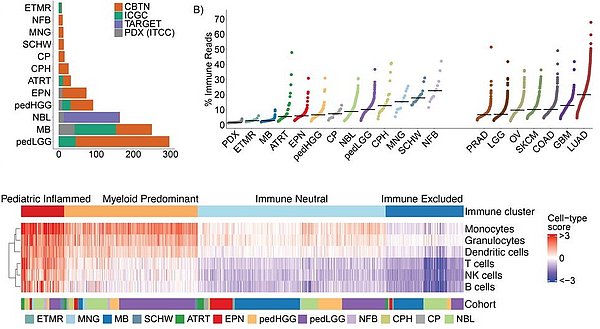Mutational signature analysis is a powerful method to understand the underlying molecular mechanisms of cancer. Our recent paper in Nature Cancer looked across 785 pediatric cancer whole genomes in 27 distinct molecular subtypes and found that compared to adult tumors pediatric cancers have a lower number of operant mutational processes and provided novel insights into these mutational processes that may serve as predictive biomarkers for treatment response.
Another focus of our group is to find novel insights into germline cancer predisposition. One such project aims to discover novel cancer predisposition genes in a large pediatric pan-cancer cohort through rare variant burden testing. Our group is also involved in collaborative studies involving ADDRess (Abnormal DNA Damage Response Disorders) and a survivor study analyzing sequencing data in patients from the German Childhood Cancer Registry.
As part of our support for the INFORM program we have been a part of several recent studies developing the INFORM drug screening pipeline. We are also currently involved in performing multi-omic integration analyses between genomic features collected in INFORM and drug response phenotypes in order to identify novel susceptibility targets.
Our group is working on several projects describing the contribution of the tumor microenvironment (TME) in cancer through immune de-convolution of RNA-seq and DNA methylation data. The goal of our recent study was to profile the immune composition of tumors that had not undergone therapy to aid in the selection for potential immunotherapy targets. We were able to identify subgroups of patients who were more or less immune “hot” and identified potential immune susceptibility in this cohort. As immunogenic approaches become more common this may be a more precise way to predict which patients will be likely to have therapeutic benefits.


